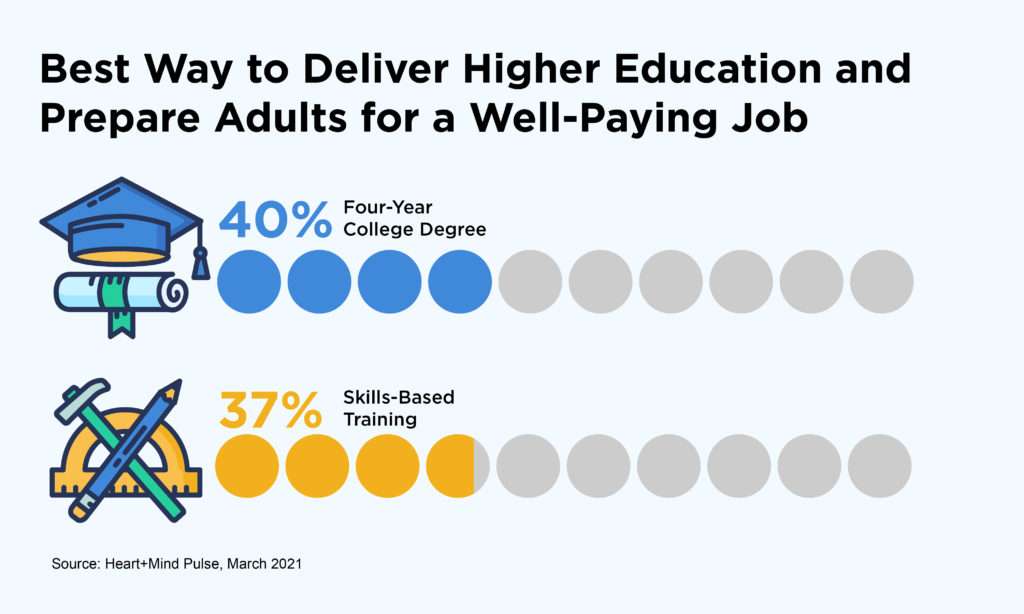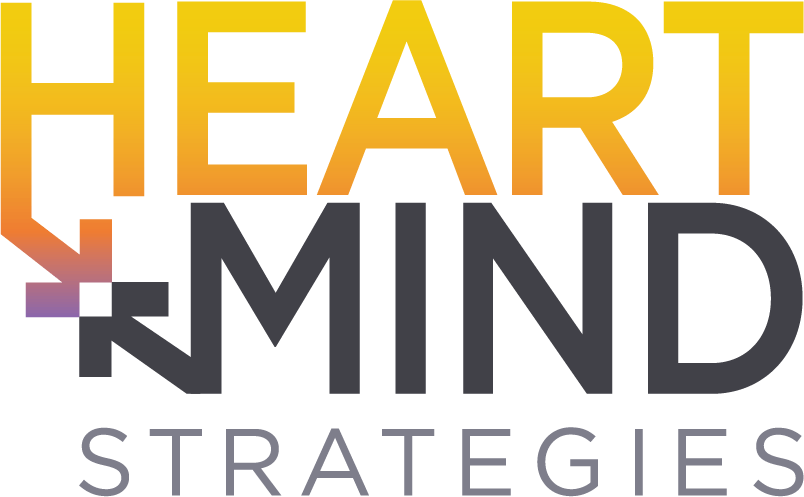By Andrew Cober
Think fast! What do these leading companies have in common (other than they all received payments from me in the past 12 months)?
- Penguin Random House
- Costco
- Whole Foods
- Hilton
- Apple
- Starbucks
- Nordstrom
- Home Depot
- IBM
- Bank of America
Give up? They have all moved away from requiring positions to be staffed by employees wielding traditional four-year college degrees.
Businesses are increasingly looking toward “ready-to-work” skills over degree pedigree in their hiring practices. Coupled with the ever-increasing cost of post-secondary education and, perhaps, a wholesale reassessment of the “value” of these programs that came from our collective COVID-19 experience, institutions are rethinking their focus on traditional pathways from education to work.
Dave Clayton of Strada’s Center for Education Consumer Insights notes that data from their ongoing Public Viewpoint research shows that fully 86% of workers say that skills and experience are very important for hiring and advancement, compared to 63% reporting that formal education factors, like field of study, are very important.
And if that’s not compelling enough, take it from Elon Musk ($180 billion net worth) who was widely quoted during the 2020 Satellite Conference:
“I think college is basically for fun and to prove that you can do your chores, but they’re not for learning…you can learn anything you want for free.”
– Elon Musk
That’s a real dagger to the value equation if you are a college admissions officer.
College Degree vs. Skills-based Training
With college enrollment continuing to decline (a trend pre-pandemic), the public is reassessing that value equation as well. Our recent national Heart+Mind Pulse survey shows that twice as many Americans believe the value of traditional four-year college degrees is worth less than it was 10 years ago (45%) compared to those who feel it is worth more (21%).
RELATED: 4 Strategies to Make Higher Education More Effective
We further find a nation split over four-year college degrees versus skills-based training as the best path forward. Less than half of Americans (40%) still view a four-year college degree as the best way to get a well-paying job. The groups that still find value in four-year college degrees tend to be:
- Younger (Gen Z 45% vs. Boomer 33%),
- College graduates (53% vs. 33% with some college or vocational/technical degrees)
- Male (45% vs. 34% female).
In contrast, almost the same percentage (37%) now say that a skills-based approach that offers greater flexibility and lower cost is better for career preparation. It’s worth noting this belief comes from the experienced among us – 49% of Boomers prefer the skills-based approach over the 4-year degree, notably the group likely to be giving advice, if not financial support, to the rising generation.

Educators and Employers Working Together
The implications of the shifting education dynamic are clear. First, higher education institutions need to adapt to marketplace demand. They need to increase their focus on upskilling and tailoring skills development to empower graduates to hit the ground running for employers. Second, employers would be well served to reevaluate their hiring criteria in ways that match immediate business needs with the skill proficiency demonstrated by potential employees, more than a specific college degree.
The time for meaningful and synergistic partnership between the private sector and higher education is now. In the words of our favorite billionaire CEO of Space X and Tesla “Don’t confuse schooling for education.”
